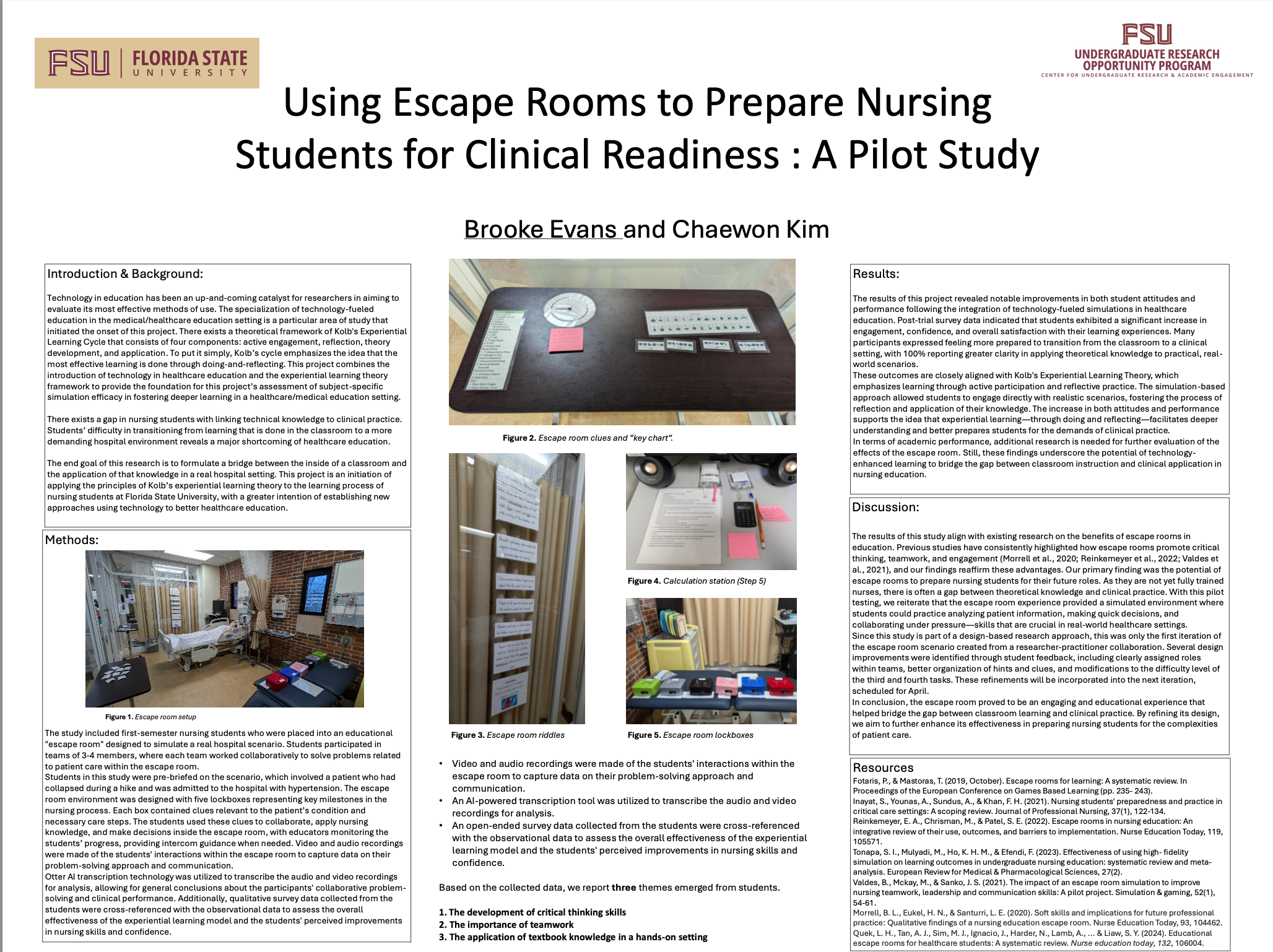Research Symposium
25th annual Undergraduate Research Symposium, April 1, 2025
Brooke Evans Poster Session 1: 9:30 am - 10:30 am/ Poster #47

BIO
I’m Brooke Evans, a nursing major with a minor in child development at Florida State University! I’m originally from Tampa, Florida, and I come from a long line of educators and healthcare professionals—almost all the women in my family are teachers or nurses. This legacy has sparked my passion for both education and healthcare, and it’s what drives my enthusiasm for this project. I am incredibly passionate about my pursuit of my career and my studies during my time in nursing school. My goal is to foster deeper learning for myself and other fellow students in healthcare education and make the learning process more engaging and practical, especially for future nurses!
Using Escape Rooms to Prepare Nursing Students for Clinical Readiness: A Pilot Study
Authors: Brooke Evans, Chaewon KimStudent Major: Nursing
Mentor: Chaewon Kim
Mentor's Department: Instructional Systems and Learning Technologies Mentor's College: College of Education Co-Presenters: N/A
Abstract
- Technology in education has been an up-and-coming catalyst for researchers in aiming to evaluate the most effective methods of use. In the medical and healthcare education setting, this particular area of study initiated the onset of this project.
- This study combines this technological approach with the principles of the experiential learning theory, also known as Kolb’s cycle. This educational theory discusses how concrete experiences contribute to the learning process. In the case of this project, this theory was applied by facilitating experiential engagement and collaboration in nursing-simulated escape room challenges to address existing gaps between nursing education and student clinical readiness.
- The escape rooms allowed students to immerse themselves in a real- world problem-solving scenario, reflecting the emphasis of the experiential learning theory on the involvement of learners and the situated nature of knowledge. In addition, this research also examined the role of pre-briefing and de-briefing through evaluation of post-survey data, supported by the idea that maximum retention requires meaningful reflection between the experience and further understanding.
- The results highlight the importance of structured experiential learning using technology-based simulation in the nursing education setting and reflect the importance of incorporating a window of reflection in enhancing student performance. We suggest further research to refine and validate this technological model of experiential learning in a nursing-educational context.
Keywords: Nursing, Education, Healthcare

